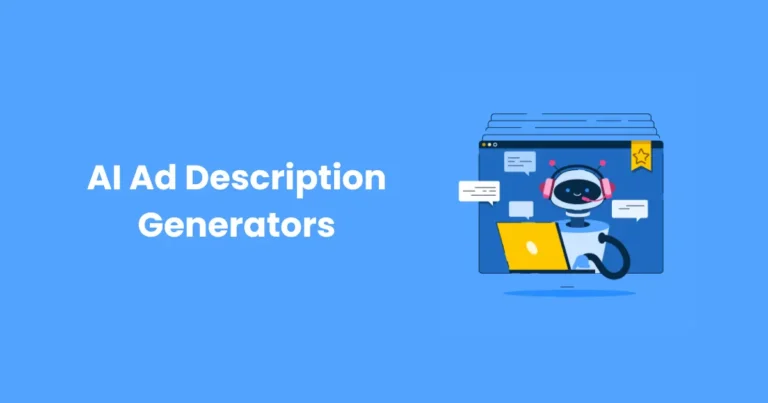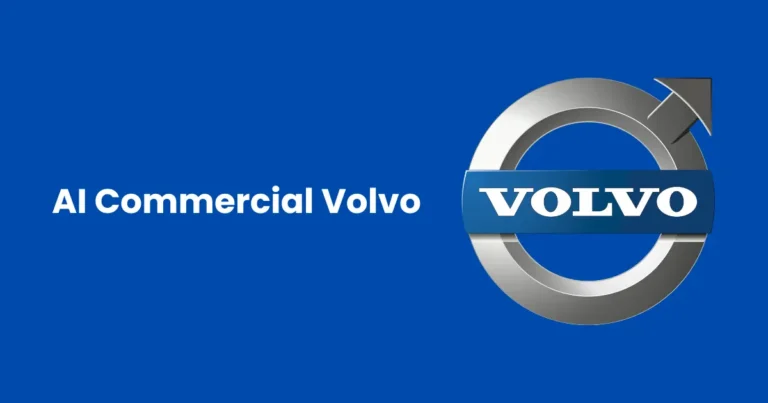Law for AI commercials | AI In Ads and Regulatory Challenges

Contents
AI technology has transformed the advertising landscape, with law for AI commercials becoming a crucial topic in today’s legal and technological discussions. AI-generated advertisements offer unparalleled creativity and efficiency, but they also introduce unique legal challenges. For instance, questions surrounding intellectual property, data privacy, and ethical standards often arise when AI is used to create promotional content. To navigate these complexities, businesses must understand the law for AI commercials to ensure compliance and avoid potential disputes.
This article explores the key legal frameworks governing AI commercials, highlighting their implications for businesses and offering insights into how these laws are shaping the future of advertising.
Intellectual Property Laws for AI Commercials
The rapid rise of AI-generated content has sparked numerous debates about intellectual property rights. In the context of law for AI commercials, one of the most pressing questions is: who owns the content created by AI? Since traditional copyright laws were designed with human creators in mind, they struggle to address the unique dynamics of AI-generated work.

Ownership of AI-Generated Content
When AI creates commercials, determining ownership becomes complex. Typically, copyright law attributes ownership to the creator of the work. However, with AI, there are multiple contributors, such as:
- The AI Developer: The individual or organization that created the AI software.
- The User: The person or company directing the AI to generate the commercial.
- Collaborative Teams: When multiple parties contribute to the input and refinement process.
Courts and legal frameworks globally have yet to reach a consensus on this issue. For instance, some jurisdictions allow AI-generated works to be copyrighted only if there is significant human involvement in the creative process.
Copyright Implications
AI commercials often incorporate a mix of data, visuals, and audio elements drawn from various sources. Without proper oversight, this can lead to inadvertent copyright infringement. For example:
- Training Data: AI systems are trained on datasets that may include copyrighted materials. Using such data to generate commercials could violate copyright laws.
- Generated Content: If the AI reuses patterns or elements from copyrighted works, businesses may face legal challenges.
To mitigate these risks, companies must ensure proper licensing of training data and review the final output to avoid potential violations.
In the evolving realm of law for AI commercials, adapting intellectual property laws to address these challenges is essential for protecting creators and fostering innovation.
Data Protection and Privacy Concerns
AI commercials rely heavily on data to generate personalized and engaging advertisements. However, this reliance raises critical concerns about privacy and data protection. Compliance with established laws, such as GDPR and CCPA, is essential for ensuring the ethical and legal use of personal data in AI-powered advertising.

Collecting Personal Data for AI Training
To create AI commercials, vast amounts of data are required to train machine learning models. This data often includes personal information such as:
- Demographics: Age, gender, and location of users.
- Behavioral Data: Online activities, purchasing patterns, and preferences.
- Sensitive Information: Health records, financial data, or other protected categories.
Without explicit consent, using such data can lead to violations of privacy laws. For instance, GDPR mandates that businesses obtain informed consent before collecting and processing personal data. Similarly, the CCPA gives consumers the right to know, access, and delete their personal data.
Compliance with GDPR and CCPA
Two of the most influential data protection laws, GDPR (General Data Protection Regulation) in Europe and CCPA (California Consumer Privacy Act) in the United States, impose strict regulations on data usage:
- Transparency: Companies must clearly inform users how their data will be used, particularly in AI-generated advertisements.
- Data Minimization: Only the necessary data should be collected and processed to achieve the intended purpose.
- Right to Opt-Out: Users must have the ability to refuse the use of their data in targeted advertising or AI model training.
Risks and Mitigation Strategies
AI commercials can inadvertently expose businesses to legal risks, such as:
- Data Breaches: Sensitive information used in training datasets could be leaked, leading to reputational damage and financial penalties.
- Unauthorized Use of Data: Utilizing data from third-party sources without verifying its legality can result in lawsuits.
To mitigate these risks, companies should:
- Conduct regular data audits to ensure compliance with privacy laws.
- Implement robust encryption and anonymization techniques for sensitive data.
- Establish clear policies for data collection, usage, and storage.
In the context of law for AI commercials, prioritizing data protection and privacy not only ensures compliance but also builds trust with consumers, fostering long-term brand loyalty.
Advertising Standards and Ethics
AI commercials have opened new possibilities for creativity and engagement, but they also bring ethical and regulatory challenges. Adhering to advertising standards and maintaining ethical practices are essential to ensure the responsible use of AI in marketing. The law for AI commercials must address these concerns to safeguard consumer trust and promote fairness.

Misleading Claims in AI Commercials
One of the primary risks associated with AI-generated advertisements is the potential for misleading or deceptive claims. AI systems can:
- Generate overly idealized portrayals of products or services.
- Fabricate testimonials or user experiences to enhance credibility.
- Use persuasive techniques that may exploit consumer vulnerabilities.
To comply with advertising standards, businesses must ensure that all claims made in AI commercials are:
- Truthful: Avoiding exaggerated or false representations.
- Substantiated: Backed by reliable data and evidence.
- Transparent: Clearly communicating AI involvement in the content creation process.
Ethical Considerations in AI-Generated Ads
Ethics play a significant role in how AI is used for advertising. Companies must consider the societal and psychological impact of their AI commercials, including:
- Manipulative Content: AI algorithms can tailor ads to individual preferences, but excessive personalization may feel invasive or exploitative.
- Targeting Vulnerable Groups: Special care should be taken to avoid manipulating children, elderly individuals, or people with cognitive challenges.
Moreover, ethical advertising requires AI-generated content to align with values of inclusivity, diversity, and social responsibility. For example, avoiding stereotypes or offensive depictions ensures that ads resonate positively with a broader audience.
Regulatory Guidelines for Ethical AI Advertising
To uphold ethical practices, businesses can refer to regulatory frameworks such as:
- The FTC’s Advertising Guidelines: Emphasizing truth in advertising and protection against deceptive practices.
- ASA (Advertising Standards Authority) in the UK: Providing guidelines for fairness, decency, and social responsibility in advertisements.
Implementing Ethical AI Advertising Practices
To align with the law for AI commercials and ethical advertising standards, businesses should:
- Develop internal review processes to assess AI-generated content for compliance and ethical considerations.
- Use explainable AI (XAI) to understand and regulate the decision-making process behind content creation.
- Collaborate with legal and ethics experts to establish best practices.
By following these standards and ethical principles, businesses can leverage the power of AI while maintaining consumer trust and adhering to regulatory requirements. This ensures that AI commercials not only achieve their marketing objectives but also contribute to a fair and respectful advertising ecosystem.
Regulations on Bias and Discrimination
AI commercials, while innovative, can unintentionally perpetuate biases and discriminatory practices. Addressing these issues is a critical component of the law for AI commercials. Ensuring fairness and inclusivity in AI-generated advertisements not only protects businesses from legal consequences but also strengthens their reputation in diverse markets.

Preventing AI Bias in Advertising
AI systems rely on data to make decisions, and biased training data can lead to discriminatory outcomes. In advertising, this might manifest as:
- Excluding certain demographic groups from targeted campaigns.
- Reinforcing stereotypes through biased language, imagery, or messaging.
- Unequal representation in AI-generated visuals or narratives.
For example, an AI system trained on limited or skewed datasets may disproportionately feature individuals from a specific race or gender in advertisements, alienating other groups. To combat this, businesses must implement rigorous checks to identify and mitigate biases in both the data and the algorithms used for generating AI commercials.
Inclusive Practices in AI Commercials
To align with ethical standards and anti-discrimination laws, businesses should prioritize inclusivity in their advertising strategies by:
- Ensuring diverse representation in AI-generated visuals.
- Avoiding stereotypes and promoting neutral, inclusive language.
- Actively reviewing ad campaigns for potential biases before launch.
Legal Frameworks Addressing Bias and Discrimination
Several laws and guidelines aim to prevent bias and discrimination in AI applications, including advertising:
- Equal Opportunity Laws: These prohibit discrimination based on race, gender, age, religion, or disability in all commercial activities, including advertising.
- AI-Specific Guidelines: Emerging regulations, such as the EU’s Artificial Intelligence Act, emphasize the need for fairness and non-discrimination in AI systems.
- FTC Guidelines: In the U.S., the Federal Trade Commission monitors unfair or deceptive advertising practices, which include discriminatory elements.
Strategies to Ensure Compliance
Businesses can adopt the following strategies to comply with regulations on bias and discrimination in AI commercials:
- Diverse Training Data: Use datasets that reflect a wide range of demographics and perspectives.
- Bias Audits: Regularly evaluate AI algorithms for potential biases.
- Explainable AI (XAI): Implement systems that provide transparency in decision-making, allowing businesses to identify and rectify bias.
- Diversity in Oversight Teams: Include individuals from diverse backgrounds in teams responsible for overseeing AI-generated content.
By adhering to these practices, companies can create AI commercials that are fair, inclusive, and compliant with the law for AI commercials, fostering trust among consumers while avoiding legal risks.
AI Commercial Contracts
As businesses increasingly adopt AI for advertising, formal agreements must define the roles, responsibilities, and legal obligations of all parties involved. The law for AI commercials plays a significant role in shaping these contracts, ensuring clarity and protecting stakeholders from potential disputes.

Key Elements of an AI Commercial Contract
An AI commercial contract should address several critical components:
Ownership of Content
- Clearly define who owns the AI-generated content, whether it is the business commissioning the advertisement, the AI developer, or a shared arrangement.
- Include provisions for intellectual property rights and licensing to avoid future disputes.
Data Usage and Privacy
- Specify the data required for training and operational purposes, ensuring compliance with privacy laws such as GDPR and CCPA.
- Include clauses on data security and restrictions on sharing or reusing sensitive information.
Performance Metrics
- Set measurable goals and key performance indicators (KPIs) for the AI-generated commercials, such as audience engagement or conversion rates.
- Define accountability in case the AI fails to meet the expected standards.
Bias and Non-Discrimination
- Include clauses that mandate bias-free content creation and compliance with anti-discrimination laws.
- Specify penalties for breaches related to discriminatory or unethical content.
Liability and Risk Allocation
- Clearly allocate liability in cases of copyright infringement, data breaches, or regulatory non-compliance.
- Outline indemnity clauses to protect businesses from financial losses arising from legal disputes or AI-related errors.
Standard Clauses to Include
An AI commercial contract should include the following standard legal clauses:
- Confidentiality: Protect sensitive business data and AI algorithms.
- Termination Terms: Define conditions under which the contract can be terminated by either party.
- Force Majeure: Address scenarios where unforeseen events disrupt AI operations.
- Governing Law: Specify the legal jurisdiction governing the contract.
Drafting AI Commercial Contracts
When drafting contracts, businesses should:
- Collaborate with legal experts familiar with the law for AI commercials.
- Use precise language to minimize ambiguities.
- Regularly update contracts to reflect changes in AI regulations and technology advancements.
With well-crafted AI commercial contracts, businesses can safeguard their interests, enhance collaboration, and navigate the complexities of using AI in advertising while aligning with legal frameworks.
Jurisdictional Challenges in AI Advertising Laws
AI-generated commercials transcend traditional geographical boundaries, making jurisdictional challenges a significant issue in law for AI commercials. As AI technology operates globally, businesses must navigate a complex web of regulations and laws that vary by country and region. The international nature of AI advertising raises questions about where legal disputes should be resolved, which laws should apply, and how companies can ensure compliance across multiple jurisdictions.

Global Nature of AI and Cross-Border Advertising
AI systems used for generating commercials are often deployed on a global scale, targeting diverse markets. This creates a situation where an advertisement created by AI could be seen in numerous countries, each with its own legal frameworks for advertising, data protection, and intellectual property. For instance, an AI-generated ad that complies with U.S. laws may not meet the regulatory requirements in Europe, where the GDPR is more stringent, or in Asia, where data privacy regulations vary widely.
The international reach of AI advertising means that businesses must consider the following jurisdictional challenges:
- Compliance with Multiple Laws: Different jurisdictions may have contrasting rules regarding data collection, advertising content, and consumer protection.
- Varying Ethical Standards: What is acceptable in one culture or country may be considered offensive or discriminatory in another.
- Conflicting Regulations: Certain regions may have stricter regulations on AI, requiring businesses to adapt their advertisements accordingly.
Extraterritorial Application of Laws
Some regulations, such as the EU’s GDPR, have an extraterritorial scope, meaning they apply not only within the EU but also to businesses outside the EU that target or process data of EU citizens. This can create confusion for global businesses who may not be aware of the extent to which local laws apply to their operations. Additionally, laws like the California Consumer Privacy Act (CCPA) impose similar requirements on companies dealing with residents of California, regardless of the company’s location.
Businesses must address these concerns by:
- Understanding the reach of applicable laws in each market they operate.
- Ensuring they comply with data protection regulations even when dealing with cross-border audiences.
- Consulting legal experts familiar with international AI regulations.
Dispute Resolution in Cross-Border AI Advertising
When disputes arise regarding AI commercials, jurisdictional issues can complicate legal proceedings. If an AI-generated advertisement violates advertising standards or privacy laws in multiple jurisdictions, businesses may face lawsuits in different countries with differing legal systems. The challenges include:
- Multiple Legal Actions: A single advertisement could lead to legal actions in multiple jurisdictions, creating legal and financial burdens.
- Inconsistent Rulings: Different courts may issue conflicting rulings regarding the legality of the same AI commercial.
- High Costs of Compliance: Companies may need to navigate legal complexities and invest in compliance across different jurisdictions, increasing operational costs.
To manage these challenges, businesses should:
- Include choice of law and forum selection clauses in contracts to determine which jurisdiction’s laws apply in case of disputes.
- Utilize international arbitration for resolving cross-border legal issues efficiently and cost-effectively.
- Ensure that advertising campaigns are adaptable to the regulatory standards of different countries.
Jurisdictional challenges in AI advertising laws are a complex and evolving issue. Businesses must be proactive in understanding and complying with the diverse legal requirements that govern AI commercials in different regions. By doing so, they can mitigate legal risks, avoid costly disputes, and continue to innovate in the global advertising space.
Future of Laws for AI Commercials
The future of laws for AI commercials is rapidly evolving, driven by the ongoing advancements in artificial intelligence technology and its increasing integration into the advertising industry. As AI continues to shape how businesses connect with consumers, new legal frameworks will be necessary to ensure that AI-generated content remains ethical, transparent, and compliant with diverse regulatory requirements. The changing landscape of AI law will likely address key concerns such as data privacy, intellectual property, bias, discrimination, and international jurisdiction.

Emerging Regulatory Frameworks for AI Advertising
Governments and regulatory bodies are beginning to recognize the need for laws that specifically address the challenges posed by AI in advertising. Some of the anticipated developments in AI commercial laws include:
- AI-Specific Legislation
Countries and regions are considering or enacting laws tailored to the use of AI in various sectors, including advertising. For example, the European Union’s Artificial Intelligence Act aims to establish a legal framework for AI applications, focusing on ensuring safety, transparency, and accountability. This type of legislation will likely influence how AI is used in advertising, setting clear guidelines for how businesses can leverage AI while protecting consumer interests. - Greater Emphasis on Transparency
As AI-generated content becomes more common, consumers will demand greater transparency in advertising. In response, future laws may require that businesses clearly disclose when an advertisement is AI-generated, how data is used to create personalized ads, and how algorithms determine targeting. Ensuring transparency will help build consumer trust and prevent deceptive practices. - Global Standards for Data Protection and Privacy
Data protection and privacy concerns will remain a priority in the future of AI commercials. As AI systems rely on large datasets to create personalized content, future laws will likely focus on standardizing data protection rules globally. The General Data Protection Regulation (GDPR) in the EU and similar legislation in other regions may evolve into international standards, setting the tone for global data privacy regulations that impact AI-generated ads.
Ethical and Bias Regulations
The future of laws for AI commercials will need to focus heavily on ethical issues, particularly related to bias and discrimination. As AI models learn from existing data, they can inadvertently perpetuate harmful biases. Future laws will likely establish stricter guidelines to mitigate these risks in AI-generated ads, ensuring that they:
- Represent diverse populations fairly.
- Avoid reinforcing stereotypes or discrimination based on race, gender, age, or other characteristics.
- Uphold the values of equality and fairness in AI advertising campaigns.
Regulatory bodies may also require that companies implement regular audits to assess AI algorithms for potential biases and discrimination before they are used in commercial campaigns.
Intellectual Property and Ownership
The rise of AI-generated content presents significant challenges in intellectual property law. As AI systems become more capable of producing original advertisements, questions about the ownership of these works will become increasingly complex. Current intellectual property laws may need to evolve to address issues such as:
- Who owns AI-generated content: Should the creator of the AI algorithm or the business commissioning the advertisement hold the copyright?
- Licensing of AI Tools: As AI tools become more commercially available, new laws may address how businesses can license these tools and the intellectual property rights associated with them.
The future of AI advertising laws will likely involve the creation of new frameworks for AI-created works, ensuring that ownership and usage rights are clearly defined and respected.
International Collaboration and Harmonization
Given the global nature of AI technology and advertising, future laws for AI commercials will likely involve greater international collaboration to ensure consistency across borders. Jurisdictional challenges, as discussed earlier, will remain a significant issue for cross-border AI advertising campaigns. To address this, international treaties or agreements may be developed to harmonize regulations governing AI in advertising. Such efforts could help mitigate legal uncertainties and create a more unified approach to the regulation of AI-powered ads.
Future international collaboration could also involve establishing guidelines for the responsible use of AI in advertising, which would be adopted across different legal systems and adapted to local cultural and ethical standards.
AI Accountability and Liability
As AI systems take on more roles in advertising, establishing clear accountability and liability structures will be crucial. The future of laws for AI commercials will likely focus on determining who is responsible when AI-driven advertising campaigns go wrong—whether it’s due to technical errors, bias, misleading content, or violations of consumer rights.
- Business liability: If an AI-generated commercial causes harm or breaches legal standards, businesses may be held liable for the content produced by their AI systems.
- AI developer liability: Developers of AI tools could also face liability if their systems produce harmful or unlawful results.
- Shared responsibility: In some cases, the responsibility for AI-generated content may be shared between businesses, developers, and platform providers, depending on the circumstances.
Future laws will need to address these concerns by clearly defining accountability and establishing frameworks for resolving disputes and compensating affected parties.
The Role of AI in Shaping Consumer Protection Laws
As AI-driven advertising becomes more personalized, consumer protection laws will need to evolve to protect individuals from potential exploitation. Future laws may focus on:
- Preventing Manipulative Practices: Ensuring that AI commercials do not exploit consumers’ vulnerabilities or personal data in unethical ways.
- Providing Consumer Choice and Control: Giving consumers more control over the data used by AI systems and how they are targeted with advertisements.
- Ensuring Fair Competition: Regulating AI-powered ads to ensure that smaller businesses can compete fairly with larger corporations that may have more advanced AI capabilities.
The future of AI commercials with regulatory will be shaped by ongoing advancements in technology and the increasing demand for ethical, transparent, and inclusive AI practices in advertising. As AI continues to revolutionize the way brands connect with consumers, legal frameworks will need to keep pace with these changes to ensure that AI-generated ads remain responsible, compliant, and beneficial for all stakeholders. By embracing forward-thinking regulations, businesses can navigate the complexities of AI in advertising while safeguarding consumer rights and fostering trust in AI-powered campaigns.
Conclusion
The future of laws for AI commercials is a rapidly evolving landscape that requires proactive legal frameworks to ensure AI technologies are used responsibly in advertising. As AI continues to advance, the need for regulations that address transparency, data privacy, intellectual property, and ethical concerns such as bias and discrimination will become even more pressing. Governments and international bodies will play a crucial role in shaping these laws to ensure that businesses can innovate while respecting consumer rights and societal values. With the right legal frameworks in place, AI in advertising can be harnessed to create more personalized, engaging, and effective campaigns, all while maintaining ethical standards.
As businesses and legal experts work together to navigate these challenges, they must remain adaptable to the fast-paced changes in technology. By staying informed and compliant with emerging regulations, businesses can not only protect themselves from legal risks but also build trust with consumers. The law for AI commercials will continue to evolve, and companies that embrace these legal developments and integrate them into their practices will be well-positioned to lead in the AI-driven advertising landscape. The future of AI in advertising is promising, and with thoughtful regulation, it can create a fairer, more transparent, and more accountable industry for all.






